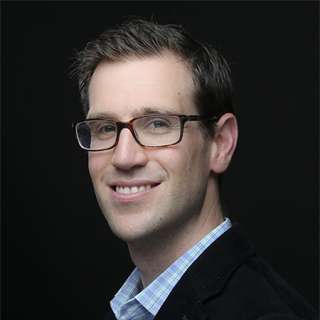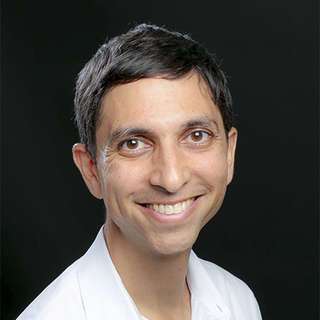The Office of Spread and Scale
The Office of Spread and Scale (OSS) aims to amplify successful models of care and innovative programs beyond our hospital walls, while learning from the success of others. To achieve this goal, we conduct research, consulting, and capacity building activities related to:
- How to include principles of implementation science in your work, projects, and research grants to help you consider sustainability, spread and scale from the beginning.
- Assessing readiness for implementation and options for spread and scale, including potential barriers and enablers.
- How to consider sustainability, spread and scale within digital health evaluations.
- Strategies for encouraging and supporting patient engagement and involvement of all relevant decision makers.
- Potential ways to spread and scale your work to similar and new contexts, populations, and settings.
- How to scale successful initiatives requiring policy changes to allow for successful adoption.
Our Approach
The OSS values collaboration, health equity, and evidence-informed decision-making while prioritizing patient-oriented research and application of practices likely to achieve great impact.
- Implementation Science: The study of methods to promote the adoption and integration of evidence-based practices, interventions, and policies into routine health care and public health settings to improve the impact on population health (National Cancer Institute, Division of Cancer Control & Population Science)
- Sustainability: The extent to which a newly implemented treatment is maintained or institutionalized within a service setting’s ongoing, stable operations. (Proctor et al, 2011)
- Spread: Replicating an initiative somewhere else (i.e. one site to another) (Greenhalgh & Papoutsi, 2019)
- Scale: Deliberate efforts to increase the impact of innovations successfully tested in pilot or experimental projects so as to benefit more people and to foster policy and program development on a lasting basis. (ExpandNet; Simmons et al, 2007)
We provide coaching and consultation services for work at any stage, including providing relevant input to funding applications, factors to consider before ethics submission, implementation and dissemination strategies, and planning for next steps. We will work with you to identify a model of service that best suits your project and team needs.
Additionally, our team also conducts research to advance the science of implementation, sustainability, spread, and scale.
Our services are available to those within and outside of Women’s College Hospital. Please contact oss@wchospital.ca for details
- In collaboration with the Centre for Digital Health Evaluation (CDHE), we have advised Ontario Health on the potential for sustainability, spread and scale of promising new initiatives
- Leading Canadian Institutes of Health Research (CIHR) funded planning grants to develop research questions and design scalable interventions on a variety of health-related topic areas
- Integrating planning for sustainability, spread and scale into digital health evaluations.
- Supporting implementation science team grants to incorporate planning for sustainability, spread and scale into research projects.
- Leading a systematic review on sustainability, spread, and scale of Audit & Feedback interventions.
Once per month we host an online discussion group that provides an opportunity for people to discuss a key topic or paper with peers and experts in the field. No experience or expertise in implementation science is necessary as we will always have a place for people who are new to the field.
To register to receive information about upcoming events, please click here.
The OSS is supported by the Ontario SPOR (Strategy for Patient-Oriented Research) Support Unit (OSSU). The OSSU is a network that engages researchers, patients, and other partners in patient-oriented research to improve the health of Ontarians and the health care system.
Additional funding is provided through research grants and consulting contracts.
Our Team
The OSS team includes a core group of individuals from the Women’s College Research Institute, Women’s College Institute for Health Systems Solutions and Virtual Care (WIHV), and several other organizations and universities.
Expertise includes implementation science, digital health evaluation, health services research, health equity, dissemination, communications, and public policy. Additional expertise will be drawn from within and beyond WIHV as needed.
Core Team members include:

Celia Laur is a scientist at Women’s College Hospital Research and Innovation Institute and an assistant professor in the Institute of Health Policy, Management and Evaluation at the University of Toronto. As an implementation scientist and health services researcher, Dr. Laur strives to progress the field of transforming research findings into practical applications within clinical settings, aiming to benefit both patients and the general public.
Her focus on how to sustain, spread and scale effective interventions supports the Office of Spread and Scale in achieving their aim of amplifying and sustaining successful models of care and innovative programs. Throughout her work, she applies a breadth of methodological skills across health disciplines and care settings, while working in partnership with clinicians, lived experience advisors, and health system decision makers.
Twitter: @Celia_Laur
 Aisha is a scientist at Women’s College Hospital Research and Innovation Institute, adjunct scientist at IC/ES, and an associate professor in the Department of Family and Community Medicine at the University of Toronto. She currently holds a New Investigator Award from the Canadian Institutes of Health Research, and holds the Chair in Implementation Science at the Peter Gilgan Centre for Women’s Cancers at Women’s College Hospital in partnership with the Canadian Cancer Society.
Aisha is a scientist at Women’s College Hospital Research and Innovation Institute, adjunct scientist at IC/ES, and an associate professor in the Department of Family and Community Medicine at the University of Toronto. She currently holds a New Investigator Award from the Canadian Institutes of Health Research, and holds the Chair in Implementation Science at the Peter Gilgan Centre for Women’s Cancers at Women’s College Hospital in partnership with the Canadian Cancer Society.
Aisha is also the Provincial Primary Care Lead, Cancer Screening at Cancer Care Ontario (Ontario Health). Her research program focusses on improving quality of care in cancer screening and prevention, particularly for populations that experience marginalization.
 Zeenat Ladak is a CIHR Doctoral Health Systems Impact Fellow working with Dr. Noah Iver’s Implementation Science team, with a focus on the Office of Spread and Scale. She is involved in the spread, scale, and sustainability of a diverse range of projects from initial design through to established networks. Zeenat has a growing interest in implementation science and also co-leads the coordination and promotion of the monthly OSS implementation science discussion groups.
Zeenat Ladak is a CIHR Doctoral Health Systems Impact Fellow working with Dr. Noah Iver’s Implementation Science team, with a focus on the Office of Spread and Scale. She is involved in the spread, scale, and sustainability of a diverse range of projects from initial design through to established networks. Zeenat has a growing interest in implementation science and also co-leads the coordination and promotion of the monthly OSS implementation science discussion groups.
Zeenat is currently completing her PhD at the University of Toronto in the department of Applied Psychology and Human Development. Her research interests span across implementation science, health equity, maternal and child health, and medical education. Zeenat’s current doctoral work explores equity in prenatal healthcare, with a goal of identifying challenges and plausible solutions to improve health equity. Her Masters in Pediatric Neurology from the University of Alberta focused on natural supplements to prevent neurodevelopmental disorders during the perinatal period. Zeenat has also been involved in many projects surrounding Canadian medical education post-graduate curriculum design and evaluation.
 Emily Nicholas Angl is an independent consultant and researcher who has worked on patient and family engagement initiatives with hospitals, government agencies, research institutes and other organizations across Canada for nearly 15 years. It was during her own patient ‘journey’ – through ER’s, OR’s, MRI’s and many acronyms in between – that Emily became curious about if, how and why patients should be engaged in healthcare and research. Over time, Emily has shifted from considering herself an engaged patient partner and advocate to taking a more critical, reflective approach to engagement strategy and implementation.
Emily Nicholas Angl is an independent consultant and researcher who has worked on patient and family engagement initiatives with hospitals, government agencies, research institutes and other organizations across Canada for nearly 15 years. It was during her own patient ‘journey’ – through ER’s, OR’s, MRI’s and many acronyms in between – that Emily became curious about if, how and why patients should be engaged in healthcare and research. Over time, Emily has shifted from considering herself an engaged patient partner and advocate to taking a more critical, reflective approach to engagement strategy and implementation.
Emily’s work has included various research assistant roles in labs and family health teams. She served as Director of Health Engagement and Communication with Dr. Mike Evans’ Health Lab and also the Reframe Health Lab. Currently, Emily has advisory roles with a number of research projects, as well as The Canadian Medical Association Journal (CMAJ) Collection for Patient Oriented Research panel. She has previously advised UHN’s Social Medicine program and the Accessing Centre for Expertise. Most recently she became co-producer, along with Jennifer Johannesen, of the podcast Matters of Engagement– a series which explores the complex world of patient engagement and partnership.
 Noah is a scientist at Women’s College Hospital Research and Innovation Institute and adjunct scientist at IC/ES. He is also a family physician at Women’s College Hospital (WCH) and an assistant professor in the Department of Family and Community Medicine at the University of Toronto. Recently receiving the New Investigator Award from the Canadian Institutes of Health Research, Noah is leading change that will make a difference for patients and families across Ontario.
Noah is a scientist at Women’s College Hospital Research and Innovation Institute and adjunct scientist at IC/ES. He is also a family physician at Women’s College Hospital (WCH) and an assistant professor in the Department of Family and Community Medicine at the University of Toronto. Recently receiving the New Investigator Award from the Canadian Institutes of Health Research, Noah is leading change that will make a difference for patients and families across Ontario.
 Onil is a senior scientist at Women’s College Hospital Research and Innovation Institute and the Frigon Blau Chair in Family Medicine Research at Women’s College Hospital and recipient of the Commonwealth Fund Harkness Fellowship in Health Care Policy and Practice. He practices family medicine and is an associate professor at the University of Toronto in Family and Community Medicine and the Institute of Health Policy, Management and Evaluation (IHPME). His research focuses on the integration of care for people with complex needs, examining how health systems can build capacity for innovation in service delivery.
Onil is a senior scientist at Women’s College Hospital Research and Innovation Institute and the Frigon Blau Chair in Family Medicine Research at Women’s College Hospital and recipient of the Commonwealth Fund Harkness Fellowship in Health Care Policy and Practice. He practices family medicine and is an associate professor at the University of Toronto in Family and Community Medicine and the Institute of Health Policy, Management and Evaluation (IHPME). His research focuses on the integration of care for people with complex needs, examining how health systems can build capacity for innovation in service delivery.
He co-led Building Bridges to Integrate Care, a citywide incubator for new models of care, and is now co-lead of Better Access to Care for Complex Needs (BeACCON), a provincial network within the national Canadian Institute for Health Research Strategy for Patient Oriented Research. Onil is also interested in helping health care organizations become more adept at improving existing services and exploring new ways of providing care. He does this by adapting innovation methods from the design and software industries, like user-centered design and Lean Startup to generate new models of care, studying their relationship with methods to improve quality and rigorously measure the impact of services.
Implementation Support Team members include:
- Dr. Celia Laur – Scientific Lead
- Katherine Ford, RD, PhD, CIHR Health System Impact Fellow with the University of Waterloo & the Canadian Nutrition Society
- Alyssa Kelly, PhD(c), University of Toronto (on leave)
- Zeenat Ladak – CIHR Health System Impact Fellow with the Office of Spread & Scale and University of Toronto
- Priscilla Medeiros, PhD, Knowledge Mobilization Specialist at the Edwin S.H. Leong Centre for Healthy Children
- Sam Petrie, PhD, CIHR Health System Impact Fellow with the Ted Rogers Centre for Heart Research & the University of Toronto
- Josh Porat-Dahlerbruch, PhD, Ben Gurion University; the Israel Implementation Science and Policy Engagement Centre (IS-PEC)
- Nida Shah, Manager, Virtual Care, WIHV
- Jennifer Shuldiner, PhD, Research Lead, WIHV
- Camille Williams, PhD, Innovation, Spread and Scale Lead at the Peter Gilgan Centre for Women’s Cancers
Contact us at oss@wchospital.ca to learn more about how we can help you achieve impact.